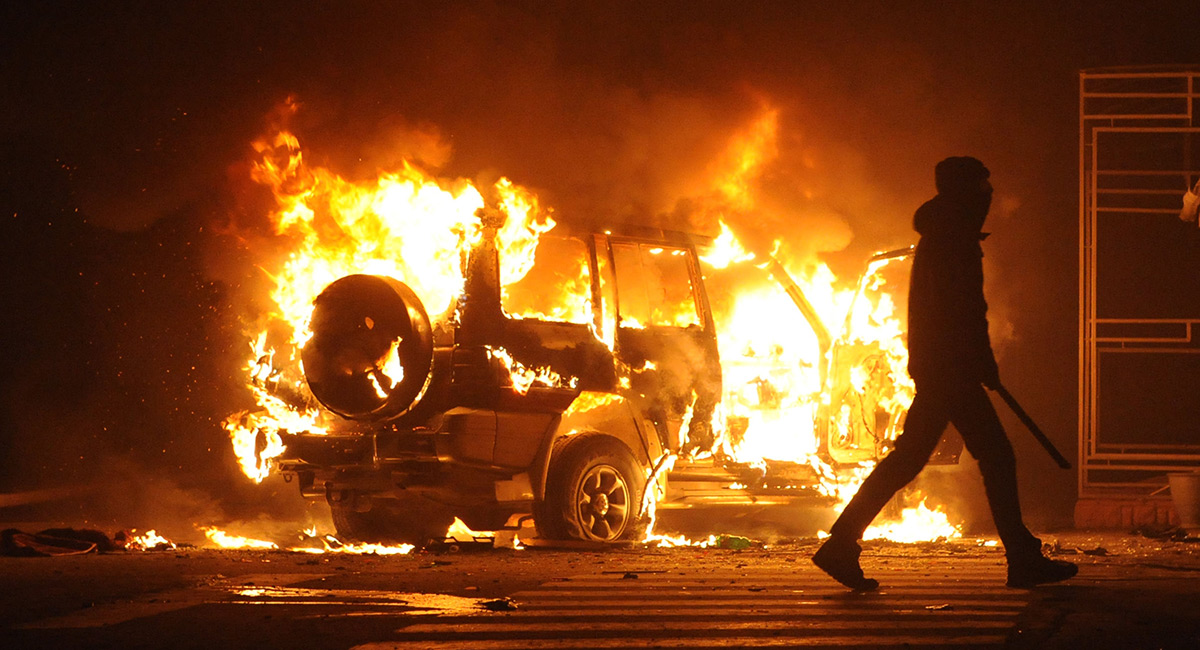“Two things are infinite,” Albert Einstein famously said: “The universe and human stupidity; and I am not sure about the universe.”
It is very difficult not to bear in mind Einstein’s depressing view of humanity when witnessing the recent turn of events.
HBO has withdrawn “Gone with the Wind” from its viewing library, claiming it’s a racist film. J.K. Rowlings, creator of the Harry Potter franchise, is being accused, under a litany of insults, of “transphobia” for pointing out, in reference to a magazine article, that the word “woman” used to be the way to refer to “a person who menstruates.”
The co-creator of “Friends” wants forgiveness for not including African-Americans in the series. Paramount Network has canceled the long-running “Cops” show for “glorifying” the police. And Winston Churchill’s statue in London’s Parliament Square was recently sullied in the name of anti-fascism because protesters claim the leader who defeated fascism was fascist.
To keep up with the mood of the times, perhaps we should bulldoze the Roman Coliseum, a symbol of barbarism, cover Machu Picchu with graffiti, reminding us that the Incas “enslaved the masses,” and paint the Taj Mahal with tar, to memorialize the disregard that Emperor Shah Jahan, an Islamic Mogul, had toward Hindus and women—with the exception, of course, of his 11 “wives” and the 2,000 or so other women who comprised his harem.
Part of what is happening originates in the guilty conscience that has long been a feature of Western elites. Combine this with the deep-felt resentments of certain groups and individuals, and the frivolity of bored middle-class kids, and you achieve what we are now seeing: significant numbers of people taking their grievances, many of them justified, to violent, illiberal extremes.
When was the West’s guilty conscience born? Perhaps during the colonization of Latin America by Spain, a dominant European power at the time, when Dominican friars like Bartolomé de las Casas, Francisco de Vitoria and Antonio Montesinos admirably lashed out at the mistreatment of the indigenous Indians.
Another possibility is that its antecedent can be found in what certain French academics call the “bourgeois bad conscience” that emerged in the 19th century during the Bourbon Restoration, when the sons of the bourgeois who had carried out the French Revolution on behalf of a more egalitarian society realized that “the people” were no better off and they had become the new aristocrats.
While those are possibilities, a more likely cause of today’s collectivized, identity—and grievance-based politics is multiculturalism.
Following World War II, when the European overseas colonies in Africa and Asia achieved independence, the idea that all cultures and values are equivalent became fashionable.
This notion, pushed by academics and intellectuals at first, turned into an ideology that sought to divide society into collectivist entities—groups—that were due certain “rights” and benefits from the rest of society.
Western civilization and its paradigms, liberal democracy and individual rights, fell out of favor. The idea that identity was based not on individual characteristics, but on belonging to a particular ethnic or minority group, became “cool,” with advocates demanding that society repair the damage suffered by these groups in the past through monetary compensation and that history be corrected by erasing the oppressive past from our memories by removing exterior signs and symbols.
The “Antifa” agitators who call everyone who is not allied with them a fascist—but act like fascists themselves by turning legitimate grievances into acts of vandalism and violence—weaken their cause by threatening liberal democracy and peaceful coexistence.
Decent people do not want America turned into a war zone in the name of anti-fascism, anti-racism or any other anti-ism. To think otherwise is the pinnacle of stupidity.













